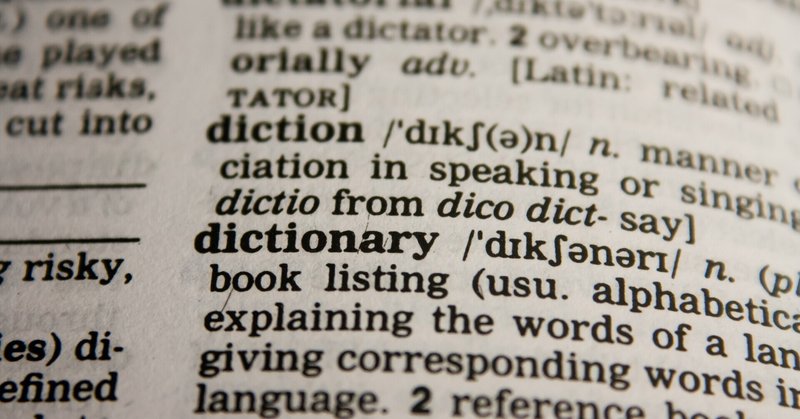
Keep an Eye Out for “FALSE FRIENDS” When Learning Foreign Languages!
In recent years, there has been an emergence of multilingual Youtubers who have been encouraging people to learn different foreign languages. Many of these language enthusiasts have claimed that learning several foreign languages at the same time is possible, with some going as far as to dismiss the importance of taking formal lessons to achieve fluency. Although it may be “humanly” possible to learn multiple languages at once, there is one “thing” that you should be mindful of – false friends.
False friends are everywhere?
False friends are words or expressions (in a foreign language) that look very similar to those in your mother tongue, but have completely different meanings. As a Chinese Canadian, I have learned Chinese, English and French and am studying Japanese at the moment. I can tell you that, for bilingual Japanese people (English and Japanese) in general, learning French or Chinese might seem easy at first only to get more and more challenging later on. This reason is simple: there are simply too many false friends between Japanese and Chinese, as well as between English and French due to their shared linguistic roots.
The influence of French on English
Let’s look at the linguistic relationship between English and French. The influence of French on English has been far-reaching as a result of successful military conquests, with approximately 40,000 English words coming directly from French. That said, over the course of history, English has evolved and, as a result, many of those “borrowed” words have been redefined or “anglicized”. For example, the French word “librairie” looks almost the same as the English word “library. Although both concern “books” and the act of “reading”, “librairie” means “bookstore” in French rather than a place where one can read books for free. The French word “médecin” is another good example of false friends, as it is spelled in a similar way as “medicine” in English. Just like the first example, these two words share the same linguistic roots but “médecin” means “doctor” in French and therefore has nothing to do with pills or tablets.
Same Kanji characters but different meanings?
Now let’s move on to Chinese, a language that has become increasingly important for business, and how it is different from Japanese. As we all know, Chinese characters or Kanji are used in both Japanese and Chinese as a result of the introduction of China’s character system in Japan centuries ago. That said, similar to how English has evolved, some ancient Kanji characters have since been redefined and new ones have been invented since the Meiji Era. One common example of false friends between these two languages is the word “Daijobu 大丈夫”, which means “okay or no problem” in Japanese. However, when used in Chinese, it means “big husband” and, quite honestly, does not make much sense. In another example, the Japanese word “Oo-ya 大家” could not be more different than the same word in Chinese. This is because “大家” means landlord in Japanese but “everyone” in Chinese.
In short, as fun as learning foreign languages may sound to all of you, it is very important that you learn how to differentiate “real” friends from “false” ones. I wish all of you the best of luck on your learning journey!
Keywords False Friends (phrase): 空似言葉
Emergence (noun): 出現
Mindful (adjective): 注意して
Linguistic (adjective): 言語の、(言)語学(上)の
Multilingual (adjective): 多数の国語を話す
Evolve (verb): 進化する
Ancient (adjective): 古代の
Anglicized (adjective): (…を)英国風にする
Author
Name: Brian Yap
Nationality: Canadian
Education :
M.A. in Pacific Asian Studies, SOAS University of London (SOAS: School of Oriental & African Studies)
Past Work Experience :
- Tokyo Correspondent - Bloomberg Industry Group (An affiliate of Bloomberg L.P)
- Asia Reporter (Hong Kong-based) - International Financial Law Review, UK-listed Euromoney Institutional Investor PLC
- General News Reporter (Internship) - Thomson Reuters Corporation
Areas of journalism :
Sports, Entertainment, Politics, Finance, Trade, Business. etc
著者:
Brian Yap ブライアン・ヤップ
学歴:
クワントレン工科大学の新聞学科 (バンクーバー、カナダ)
ロンドン大学東洋アフリカ学院の太平洋研究科 (ロンドン、イギリス)
職歴:
ブルームバーグBNAー東京特派員
ユーロマネー・インスティテューショナル・インベスターアジアレポーター (香港駐在)
トムソン・ロイター (インターン) レポーター
報道の経験/分野:
スポーツ、娯楽、政治、金融、貿易、ビジネス
Brian講師が活躍するスパルタ英会話法人部HP:
https://corp.spartan-english.jp/
3ヶ月で英語が話せるようになるスクール スパルタ英会話HP:
https://spartan-english.jp/
この記事が気に入ったらサポートをしてみませんか?
